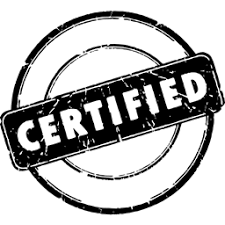
In the pursuit of academic excellence, the journey toward a Ph.D. is a formidable challenge. As aspiring scholars navigate the intricate maze of research, data collection, and analysis, they often find themselves immersed in the arduous task of drafting their research proposals. These documents, essential for securing funding and institutional approval, serve as the foundation upon which groundbreaking discoveries and transformative contributions to knowledge are built. However, the road to a well-crafted research proposal is often fraught with obstacles, with one of the most critical being the need for thorough rewriting and editing. We understand the critical role that meticulous editing plays in elevating research proposals to their full potential. Our mission is to provide the best, in terms of expert help to rewrite and edit Ph.D. a research proposal, recognizing that even the most brilliant ideas may remain hidden beneath layers of unclear language, structural inconsistencies, and formatting errors. With a team of highly skilled editors who specialize in various academic disciplines, we offer a comprehensive range of services tailored to meet the unique needs of each researcher. Our rewriting and editing help is a beacon of hope for Ph.D. candidates aiming to transform their initial drafts into polished, coherent, and compelling research proposals. We prioritize clarity, precision, and coherence in every aspect of your proposal, ensuring that your ideas shine through with the brilliance they deserve. Our seasoned editors meticulously review and refine your work, addressing issues such as grammar, syntax, punctuation, and formatting, while also providing valuable feedback on the overall structure, logical flow, and research methodology. Whether you are at the inception of your Ph.D. journey or deep into the research process, our services are designed to empower you with the confidence to present your proposal with conviction and authority. As scholars ourselves, we appreciate the gravity of your academic ambitions and the importance of your research proposal in realizing those dreams. Our research proposal revising service is your trusted partner in ensuring that your work stands as a testament to your commitment to excellence and contributes meaningfully to the academic discourse in your field. As such, we are a reliable service in terms of offering expert rewriting and editing help.
We Offer Affordable Research Proposal Editing Assistance
We understand that embarking on a Ph.D. journey comes with its fair share of financial challenges. Pursuing advanced education and conducting groundbreaking research can be a significant financial commitment, and we believe that access to high-quality research proposal editing assistance should not be an additional burden on your academic path. That's why we take pride in offering affordable services to cater to the diverse needs of Ph.D. candidates, acknowledging the importance of striking a balance between excellence and affordability. Our commitment to providing cheap research proposal editing and rewriting assistance is rooted in our dedication to inclusivity and accessibility. We firmly believe that every aspiring scholar, regardless of their financial constraints, should have access to the tools and resources necessary to refine and enhance their research proposals. With this mission at the core of our service, we have structured our pricing in a way that aligns with the budgetary considerations of Ph.D. candidates. Affordability does not, however, compromise the quality of our services. Our team of the best editors maintains the same high standards of excellence and attention to detail for every proposal we review. We ensure that your research proposal not only meets the rigorous standards of academic integrity but also stands out as a compelling and persuasive document that can secure funding and institutional approval. By offering affordable help, we empower Ph.D. candidates to take charge of their academic journey without the added stress of exorbitant editing costs. We understand that the success of your research proposal is pivotal to your overall research endeavor, and we are committed to providing a cost-effective solution that helps you realize your academic aspirations. Essentially, affordability is not just a buzzword; it's a fundamental principle that drives our commitment to making top-notch research proposal editing accessible to all. We believe that your financial circumstances should not be a barrier to achieving your academic goals, and we are here to support you on your path to Ph.D. success with affordable, high-quality assistance.
We Offer The Best Assistance To Rewrite Research Proposals For Doctorate Scholars
Our team specializes in providing Ph.D. research proposal rewriting & editing help. With a deep understanding of the critical importance of a well-crafted research proposal in the pursuit of your doctorate, we offer a comprehensive range of assistance to ensure your proposal stands out and meets the highest academic standards. Our best approach entails;
- Thorough Analysis: We begin by thoroughly reviewing your existing research proposal, paying close attention to its structure, clarity, and coherence.
- Customized Solutions: Our experienced team of experts, well-versed in various academic disciplines, will work closely with you to understand your research objectives and requirements.
- Enhanced Clarity and Precision: We refine your proposal to enhance its clarity and precision, ensuring that your research goals and methodologies are articulated with the utmost clarity.
- Flawless Language: Our proficient writers pay meticulous attention to grammar, style, and language to ensure your proposal reads professionally and fluently.
- Alignment with Guidelines: We ensure that your proposal adheres to the specific formatting and content guidelines of your institution or department.
- Plagiarism Check: Every proposal is subjected to a thorough plagiarism check to ensure originality.
- Timely Delivery: We understand the importance of deadlines and strive to deliver your revised proposal promptly.
- Confidentiality: Your research and personal information are treated with the utmost confidentiality and security.
- Unlimited Revisions: We offer unlimited revisions to ensure that you are fully satisfied with the final product.
Our goal is to help you present a compelling, well-structured, and academically sound Ph.D. research proposal that reflects the depth of your research ambitions. With our assistance, you can maximize your chances of gaining approval and embarking on your research journey with confidence.
 Seeking help to rewrite or edit a proposal and availing yourself of our guidance is a crucial step in the academic journey of any aspiring doctoral candidate. This process serves as a pivotal moment where the foundation of one's research project is refined and strengthened, setting the stage for a successful and impactful dissertation. Our Ph.D. research methodology editing assistance offers scholars the opportunity to elevate the clarity and coherence of their research proposals. Through the expert eyes of experienced mentors or professional editors, potential weaknesses in argumentation, organization, or language can be identified and addressed. This not only enhances the overall quality of the proposal but also ensures that the research goals are communicated effectively to reviewers and potential sponsors. Furthermore, seeking our guidance in rewriting or editing a proposal can significantly improve its originality and innovativeness. Our experts can help candidates refine their research questions, suggest new angles of investigation, and encourage creative thinking. This process leads to proposals that stand out in the competitive academic landscape, increasing the likelihood of securing funding and gaining recognition in the field. Moreover, we can provide an invaluable opportunity for candidates to learn and grow as researchers. Constructive feedback and suggestions empower individuals to develop their academic writing and research skills, which are vital for success in the rigorous world of doctoral studies and beyond. This mentorship fosters a culture of continuous improvement, where scholars can apply the lessons learned during the process to their future work. Essentially, the decision to seek help in editing or rewriting a Ph.D. proposal should not be viewed as a sign of weakness but rather as a strategic investment in one's academic and professional future. It is a testament to the commitment to excellence and recognition of the value of external perspectives and expertise. Through this collaborative effort, scholars can transform their initial research proposals into robust, compelling, and impactful documents that lay the groundwork for groundbreaking research and make significant contributions to their respective fields. We are a reliable team that can offer expert Ph.D. research proposal rewriting & editing help. We guarantee the best.
Seeking help to rewrite or edit a proposal and availing yourself of our guidance is a crucial step in the academic journey of any aspiring doctoral candidate. This process serves as a pivotal moment where the foundation of one's research project is refined and strengthened, setting the stage for a successful and impactful dissertation. Our Ph.D. research methodology editing assistance offers scholars the opportunity to elevate the clarity and coherence of their research proposals. Through the expert eyes of experienced mentors or professional editors, potential weaknesses in argumentation, organization, or language can be identified and addressed. This not only enhances the overall quality of the proposal but also ensures that the research goals are communicated effectively to reviewers and potential sponsors. Furthermore, seeking our guidance in rewriting or editing a proposal can significantly improve its originality and innovativeness. Our experts can help candidates refine their research questions, suggest new angles of investigation, and encourage creative thinking. This process leads to proposals that stand out in the competitive academic landscape, increasing the likelihood of securing funding and gaining recognition in the field. Moreover, we can provide an invaluable opportunity for candidates to learn and grow as researchers. Constructive feedback and suggestions empower individuals to develop their academic writing and research skills, which are vital for success in the rigorous world of doctoral studies and beyond. This mentorship fosters a culture of continuous improvement, where scholars can apply the lessons learned during the process to their future work. Essentially, the decision to seek help in editing or rewriting a Ph.D. proposal should not be viewed as a sign of weakness but rather as a strategic investment in one's academic and professional future. It is a testament to the commitment to excellence and recognition of the value of external perspectives and expertise. Through this collaborative effort, scholars can transform their initial research proposals into robust, compelling, and impactful documents that lay the groundwork for groundbreaking research and make significant contributions to their respective fields. We are a reliable team that can offer expert Ph.D. research proposal rewriting & editing help. We guarantee the best.
PhD Research Proposal Revision Help | Best Services
 The journey towards obtaining a Ph.D. is a remarkable and challenging endeavor, marked by rigorous academic research and the creation of a research proposal that serves as the foundation for your doctoral thesis. Creating a compelling research proposal is not just about stating your intentions; it's about presenting a clear, innovative, and well-structured plan that captures the essence of your research. However, as many aspiring scholars will attest, the process of refining and perfecting a research proposal can be overwhelming. This is where we come in to offer the best research proposal revising assistance. We understand the critical role that a well-crafted research proposal plays in the pursuit of a doctoral degree. With years of experience and a dedicated team of expert academics, we are committed to providing you with top-tier revision help. Our mission is to guide you on the path to academic success by ensuring that your research proposal not only meets but exceeds the highest standards. Our services are tailored to meet the unique needs of PhD candidates across various academic disciplines. We recognize that each research proposal is a distinct representation of your scholarly pursuits, and as such, we offer personalized services to help you achieve your goals. Whether you're in the early stages of crafting your proposal or seeking to enhance an existing one, we have the expertise and resources to assist you at every step of the way. Our team of seasoned professionals includes experts who have successfully navigated the doctoral journey themselves. They bring a wealth of knowledge, experience, and a keen eye for detail to ensure that your research proposal is impeccable. From refining the research questions to enhancing the literature review and improving the overall structure, we are dedicated to elevating the quality of your proposal. We understand that effective communication is vital in academic research, and our editors will ensure that your proposal is clear, concise, and adheres to the highest standards of academic writing. Moreover, we provide expert revision help to ensure that your proposal is not only in terms of content but also in terms of presentation. Embarking on a PhD is a significant undertaking, and your research proposal is the first step toward realizing your academic aspirations. Let us be your trusted partner in this journey. Our commitment to excellence, attention to detail, and passion for academic success make us the best choice for research proposal revision, rewriting, and editing help. With our assistance, you can confidently present a research proposal that stands out and sets the stage for your doctoral achievements. We provide the best PhD research proposal reviewing help.
The journey towards obtaining a Ph.D. is a remarkable and challenging endeavor, marked by rigorous academic research and the creation of a research proposal that serves as the foundation for your doctoral thesis. Creating a compelling research proposal is not just about stating your intentions; it's about presenting a clear, innovative, and well-structured plan that captures the essence of your research. However, as many aspiring scholars will attest, the process of refining and perfecting a research proposal can be overwhelming. This is where we come in to offer the best research proposal revising assistance. We understand the critical role that a well-crafted research proposal plays in the pursuit of a doctoral degree. With years of experience and a dedicated team of expert academics, we are committed to providing you with top-tier revision help. Our mission is to guide you on the path to academic success by ensuring that your research proposal not only meets but exceeds the highest standards. Our services are tailored to meet the unique needs of PhD candidates across various academic disciplines. We recognize that each research proposal is a distinct representation of your scholarly pursuits, and as such, we offer personalized services to help you achieve your goals. Whether you're in the early stages of crafting your proposal or seeking to enhance an existing one, we have the expertise and resources to assist you at every step of the way. Our team of seasoned professionals includes experts who have successfully navigated the doctoral journey themselves. They bring a wealth of knowledge, experience, and a keen eye for detail to ensure that your research proposal is impeccable. From refining the research questions to enhancing the literature review and improving the overall structure, we are dedicated to elevating the quality of your proposal. We understand that effective communication is vital in academic research, and our editors will ensure that your proposal is clear, concise, and adheres to the highest standards of academic writing. Moreover, we provide expert revision help to ensure that your proposal is not only in terms of content but also in terms of presentation. Embarking on a PhD is a significant undertaking, and your research proposal is the first step toward realizing your academic aspirations. Let us be your trusted partner in this journey. Our commitment to excellence, attention to detail, and passion for academic success make us the best choice for research proposal revision, rewriting, and editing help. With our assistance, you can confidently present a research proposal that stands out and sets the stage for your doctoral achievements. We provide the best PhD research proposal reviewing help.
We Can Help You Write A Research Proposal Introduction That Does Not Require Revision
Our dedicated team of the best writers is here to provide you with a research proposal introduction that surpasses your expectations and eliminates the need for revisions. We understand the significance of a strong and engaging introduction in capturing the attention of your readers and setting the tone for your entire research proposal. With our assistance, you can rest assured that your research proposal's introduction will be meticulously crafted to convey the essence of your study, highlight its importance, and clearly articulate the research problem and objectives. We will ensure that your introduction is concise, well-structured, and free from grammatical or stylistic errors. Our commitment to delivering a flawless introduction extends to incorporating your unique research goals and perspective, making it a true reflection of your academic aspirations. Whether you are just starting your proposal or need a revision of your existing introduction, we have the expertise to make it stand out. By availing of our services, you gain access to a professionally written introduction that not only meets but exceeds the highest academic standards. Trust us to provide you with a research proposal introduction that not only satisfies your requirements but also impresses your reviewers, eliminating the need for revisions. Your academic success is our priority, and we are here to ensure that your research proposal introduction sets you on the path to achieving your goals. That's why we provide the best revision help.
We Can Help To Rewrite Your Research Proposal Literature Review Professionally
We specialize in providing PhD research proposal revision help, across all chapters. A literature review is crucial in a research proposal, making it necessary to rewrite. Our team of experienced academics and writers is dedicated to enhancing the quality and clarity of your literature review, ensuring it meets the highest academic standards. Whether you're looking to improve the coherence of your existing literature review, update it with the latest research, or simply refine the language and structure, we have the expertise to assist you. Our process involves a meticulous review of your literature review section, addressing issues such as citation accuracy, organization, and the overall flow of ideas. Our commitment to professionalism means that we maintain the integrity of your original work while elevating its impact. We understand the importance of a well-crafted literature review in grounding your research and demonstrating your familiarity with the relevant scholarly discourse. By choosing our services, you can be confident that your research proposal's literature review will be transformed into a polished and compelling section that not only strengthens the foundation of your research but also impresses your academic peers and evaluators. Let us help you refine your literature review to showcase your expertise and enhance the overall quality of your research proposal.
We Can Help Revise Your Research Proposal Methodology
Our professional assistance in revising a research proposal methodology is invaluable for ensuring the highest quality and credibility of your research. Engaging our experts can significantly enhance the rigor and effectiveness of your proposed methodology. One crucial avenue for professional help is to seek the guidance of our seasoned researchers and academics in your field. They can provide critical insights into the suitability of your chosen research methods, data collection techniques, and data analysis procedures. Our experts can assess the alignment of your methodology with your research objectives and offer practical suggestions to strengthen it. Consider hiring our methodologist with expertise in your specific research area. They are well-versed in various research designs, statistical methods, and data analysis tools. They can offer tailored guidance, review your methodology for methodological flaws, and assist in selecting the most appropriate statistical tests or qualitative analysis methods. Our experts related to your field of study often offer resources and expert guidance. We have specialized committees or consultants available to help researchers refine their methodologies. Accessing our resources can provide a wealth of professional input and ensure that your methodology adheres to industry best practices. Peer review is a crucial step in refining your methodology. Colleagues can identify potential biases, suggest alternative research strategies, and validate the feasibility and appropriateness of your methods. Engaging with our professionals can expose you to the latest trends and best practices in research methodology. Seeking our assistance in revising your proposal methodology is a prudent and effective approach to ensuring the highest quality research. Engaging our experts can provide you with the expertise and insights necessary to refine and strengthen your methodology, ultimately leading to more rigorous and impactful research outcomes.
 Seeking assistance in revising a Ph.D. research proposal is a crucial step toward ensuring the success of your academic journey. The services offered by our experts in the field can make a significant difference in the quality and impact of your proposal. Through their knowledge, experience, and insights, we can help you refine your research objectives, methodology, and overall presentation, ultimately increasing your chances of approval and funding. The process of revising a Ph.D. research proposal is not merely about making cosmetic changes or fixing minor errors. It involves a thorough examination of your research goals, the clarity of your research questions, the appropriateness of your methodology, and the feasibility of your project. A well-revised proposal demonstrates your commitment to producing high-quality research and contributes to your credibility as a scholar. Moreover, seeking revision help from our reputable service can save you valuable time and energy. PhD candidates often have demanding schedules, and the assistance of professionals can help streamline the revision process, allowing you to focus on other aspects of your academic work. Our support can also help reduce stress and anxiety associated with the proposal submission process, as you can be confident that your proposal is well-prepared and aligned with the expectations of your academic institution. Additionally, the benefits of our revision services extend beyond the proposal stage. A well-structured and thought-out proposal serves as a foundation for your entire research project. It sets the stage for your data collection, analysis, and thesis writing. Therefore, investing in the revision of your proposal is an investment in the success of your entire PhD journey. When it comes to revising your Ph.D. proposal, seeking our best services is a wise choice. It not only enhances the quality of your proposal but also increases your chances of obtaining approval and funding. Ultimately, the support of experts in your field can play a pivotal role in ensuring the success of your academic endeavors, making the path to earning your Ph.D. a smoother and more fulfilling one. We are here to offer PhD research proposal revision help.
Seeking assistance in revising a Ph.D. research proposal is a crucial step toward ensuring the success of your academic journey. The services offered by our experts in the field can make a significant difference in the quality and impact of your proposal. Through their knowledge, experience, and insights, we can help you refine your research objectives, methodology, and overall presentation, ultimately increasing your chances of approval and funding. The process of revising a Ph.D. research proposal is not merely about making cosmetic changes or fixing minor errors. It involves a thorough examination of your research goals, the clarity of your research questions, the appropriateness of your methodology, and the feasibility of your project. A well-revised proposal demonstrates your commitment to producing high-quality research and contributes to your credibility as a scholar. Moreover, seeking revision help from our reputable service can save you valuable time and energy. PhD candidates often have demanding schedules, and the assistance of professionals can help streamline the revision process, allowing you to focus on other aspects of your academic work. Our support can also help reduce stress and anxiety associated with the proposal submission process, as you can be confident that your proposal is well-prepared and aligned with the expectations of your academic institution. Additionally, the benefits of our revision services extend beyond the proposal stage. A well-structured and thought-out proposal serves as a foundation for your entire research project. It sets the stage for your data collection, analysis, and thesis writing. Therefore, investing in the revision of your proposal is an investment in the success of your entire PhD journey. When it comes to revising your Ph.D. proposal, seeking our best services is a wise choice. It not only enhances the quality of your proposal but also increases your chances of obtaining approval and funding. Ultimately, the support of experts in your field can play a pivotal role in ensuring the success of your academic endeavors, making the path to earning your Ph.D. a smoother and more fulfilling one. We are here to offer PhD research proposal revision help.




 The process of rewriting a proposal is a vital step in the journey of academic inquiry and innovation. Refining and revising your proposal is not merely a formality but an opportunity to enhance the clarity, feasibility, and persuasiveness of your research idea. It is a chance to align your project with the objectives of your institution, funding agency, or research committee, increasing the likelihood of approval and support. The importance of a structured approach to rewriting is undeniably important, including thorough research, critical self-assessment, and constructive feedback from peers or mentors. This iterative process not only strengthens the proposal but also hones your research skills and fosters intellectual growth. Moreover, we have highlighted the significance of effective communication, both in terms of the proposal's organization and its language. Clarity and conciseness are essential, ensuring that the proposal engages the reader while conveying the significance and potential impact of your research. Ultimately, rewriting a project proposal is an art that demands dedication, patience, and attention to detail. It is a testament to your commitment to advancing knowledge and making a meaningful contribution to your field. We can guide you on how to rewrite a research project proposal, to transform a good write-up into a great one, setting the stage for successful research endeavors that can benefit society and expand the boundaries of human understanding.
The process of rewriting a proposal is a vital step in the journey of academic inquiry and innovation. Refining and revising your proposal is not merely a formality but an opportunity to enhance the clarity, feasibility, and persuasiveness of your research idea. It is a chance to align your project with the objectives of your institution, funding agency, or research committee, increasing the likelihood of approval and support. The importance of a structured approach to rewriting is undeniably important, including thorough research, critical self-assessment, and constructive feedback from peers or mentors. This iterative process not only strengthens the proposal but also hones your research skills and fosters intellectual growth. Moreover, we have highlighted the significance of effective communication, both in terms of the proposal's organization and its language. Clarity and conciseness are essential, ensuring that the proposal engages the reader while conveying the significance and potential impact of your research. Ultimately, rewriting a project proposal is an art that demands dedication, patience, and attention to detail. It is a testament to your commitment to advancing knowledge and making a meaningful contribution to your field. We can guide you on how to rewrite a research project proposal, to transform a good write-up into a great one, setting the stage for successful research endeavors that can benefit society and expand the boundaries of human understanding.